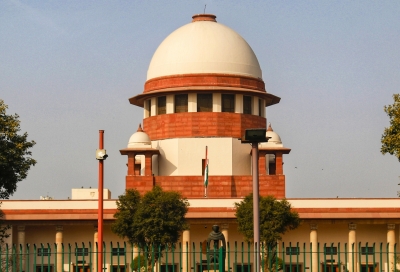SC: Court should see in prosecution’s case whether convict ultimately stands fair chance of acquittal
New Delhi: The Supreme Court said on Tuesday that while undertaking the exercise to ascertain whether the convict has fair chance of acquittal, what is to be looked into is something palpable – the appellate court should not reappreciate the evidence and try to pick up few lacunas or loopholes here or there in the case of the prosecution.
A bench comprising justices M.R. Shah and J.B. Pardiwala said the endeavour on the part of the court should be to see as to whether the case presented by the prosecution and accepted by the trial court can be said to be a case in which ultimately the convict stands fair chances of acquittal.
Justice Pardiwala, who authored the judgment on behalf of the bench, said if the answer to the above question is to be in the affirmative, as a necessary corollary, “we shall have to say that, if ultimately the convict appears to be entitled to have an acquittal at the hands of this court, he should not be kept behind bars for a pretty long time till the conclusion of the appeal, which usually takes very long for decision and disposal”.
The bench, however, said that while undertaking the exercise to ascertain whether the convict has fair chance of acquittal, what is to be looked into is something palpable.
“To put it in other words, something which is very apparent or gross on the face of the record, on the basis of which the court can arrive at a prima facie satisfaction that the conviction may not be sustainable. The appellate court should not reappreciate the evidence at the stage of Section 389 of the CrPC and try to pick up few lacunas or loopholes here or there in the case of the prosecution. Such would not be a correct approach,” said Justice Pardiwala.
The bench noted that in the case on hand, what the high court has done is something impermissible and it has gone into the issues like political rivalry, delay in lodging the FIR, some over-writings in the FIR etc.
“All these aspects will have to be looked into at the time of the final hearing of the appeals filed by the convicts,” the bench noted.
The top court made these observations while setting aside a Patna High Court order, which suspended the substantive order of sentence of life imprisonment imposed by the trial court on three accused in a murder case and ordered their release on bail pending the final disposal of the two criminal appeals. The brother of the deceased had moved the apex court against the high court order.
The top court said that upon cursory scanning of the evidence on record, “we are unable to agree with the contentions coming from the learned senior counsel for the convicts that, either there is absolutely no case against the convicts or that the evidence against them is so weak and feeble in nature, that, ultimately in all probabilities the proceedings would terminate in their favour.”
Justice Pardiwala said: “In the overall view of the matter, we are convinced that the high court committed a serious error in suspending the substantive order of sentence of the convicts and their release on bail pending the final disposal of their criminal appeals.”
The bench said, “In fact, it was expected of the state as the prosecuting agency to challenge the order passed by the high court, but for some reason or the other, the state thought fit not to do anything further. Ultimately, it is the original first informant (brother of the deceased) who had to come before this court.”
Justice Pardiwala said the order passed by the high court is set aside and the convicts are ordered to surrender before the trial court within a period of three days from Tuesday.
–IANS


Comments are closed.